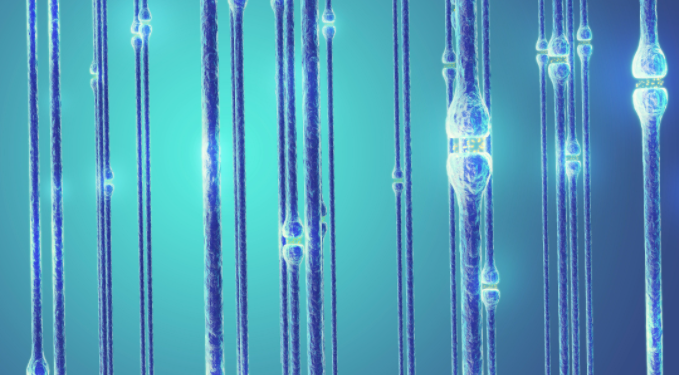by Dr. Tatiana Habanova
In the early 1900s, the consensus was that pituitary damage was a rare consequence of TBI. However, over the last 15 years, a significant body of evidence has emerged demonstrating that post-traumatic hypopituitarism (PTHP) is a common and clinically significant consequence of TBI.
Unfortunately, PTHP can masquerade as a post-concussion syndrome and be overlooked, leading to delayed recovery and impaired rehabilitation. As well, vague symptoms and no agreed-upon screening standard for PTHP has led to a significant under-diagnosis of this debilitating condition.
Researchers believe a vascular injury (ischemia or hemorrhage) is the most likely mechanism as autopsy studies have demonstrated pituitary infarction in up to 43% of fatal TBI cases. The hypophyseal vessels are anatomically vulnerable to shearing injuries and raised intracranial pressure, especially with anterior base-of-skull fractures.
The pituitary gland is a small gland that sits in the sellaturcica (“Turkish saddle”), a bony hollow in the base of the skull, underneath the brain and behind the bridge of the nose.
The pituitary gland has two main parts: the anterior pituitary gland and the posterior pituitary gland. The gland is attached to a part of the brain called the hypothalamus, which controls the activity of the pituitary gland.
The anterior pituitary gland is connected to the brain by short blood vessels. The posterior pituitary gland is actually part of the brain, and secretes hormones directly into the bloodstream.
The anterior pituitary gland produces the following hormones:
- Adrenocorticotropic Hormone (ACTH), which stimulates the adrenal glands to secrete steroid hormones like cortisol
- Growth Hormone, which regulates growth, metabolism, and body composition
- Luteinizing Hormone (LH) and Follicle Stimulating Hormone (FSH), also known as gonadotrophins, which act on the ovaries or testes to stimulate sex hormone production, and egg and sperm maturity
- Prolactin, which stimulates milk production
- Thyroid Stimulating Hormone (TSH), which stimulates the thyroid gland to secrete thyroid hormones.
Two hormones are produced by the hypothalamus, and then stored in the posterior pituitary gland before being secreted into the bloodstream. These are:
- Anti-Diuretic Hormone (also called vasopressin), which controls water balance and blood pressure
- Oxytocin, which stimulates uterine contractions during labor and milk secretion during breastfeeding
Between the anterior pituitary and the posterior pituitary lies the intermediate pituitary gland. Cells here produce Melanocyte Stimulating Hormone (MSH), which acts on cells in the skin to stimulate the production of melanin.
Since the pituitary gland produces nine different hormones, any alteration to its function leads to a myriad of complications such as fatigue, myopathy, cognitive difficulties, depression, and behavioral changes, but can also have life-threatening complications such as sodium dysregulation and adrenal crisis.
As well, studies show a clear association between pituitary dysfunction and adverse cognitive outcomes, such as memory, attention, language, physical conditioning, and mood disorders. PTHP can also lead to dyslipidemia, hypertriglyceridemia, Adiposopathy, insulin resistance, reduced quality of life, and increased risk of premature cardiovascular death from endothelial dysfunction and atherosclerosis.
Currently, the consensus among researchers is early assessment of PTHP during the acute phase of a brain injury is unnecessary due to wide fluctuations of hormonal levels. Although 3–6 months post TBI, doctors recommend all TBI patients irrespective of the severity of the initial injury have their adrenal, thyroid, and gonadal axes assessed. Due to GH deficiency post-TBI being transient, deferring GH assessment until one year post-TBI is suggested.
If any deficiencies are detected, replacement therapy is suggested to begin immediately. Evaluation of pituitary function on an ongoing basis after TBI is paramount to determine if early deficiencies have recovered.
Endocrine evaluation and management should be a part of standard multidisciplinary care for these patients. A comprehensive assessment of the pituitary function should be undertaken as partial or complete pituitary dysfunction affects
33-50% of all TBI survivors and is a significant contributor to the overall disability burden.
Clinicians involved in the management of TBI patients should consider hypopituitarism and its impact on long-term morbidity.











